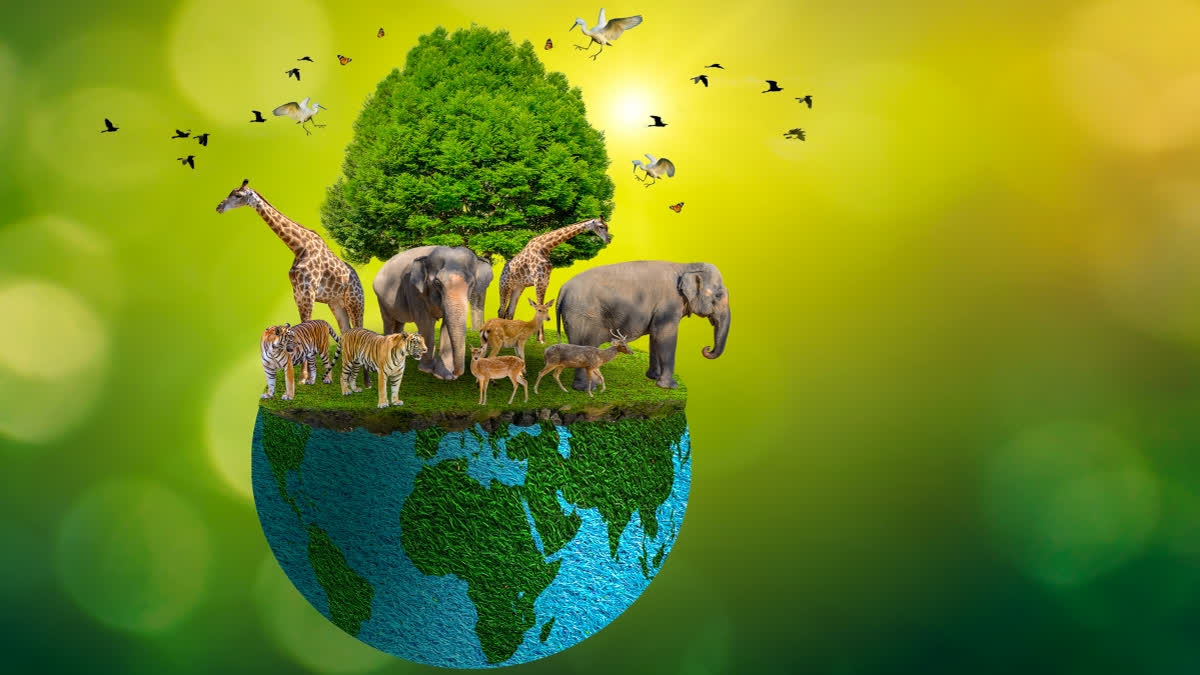New Delhi: World Animal Day, celebrated every year on October 4, is a global event dedicated to raising awareness about animal welfare and advocating for the rights of animals. It highlights the deep connection between humans and animals and emphasizes the need to protect and care for the diverse species that inhabit our planet. Since its inception in 1925, this day has evolved into a worldwide movement, inspiring millions to take action for the well-being of animals.
The Origins of World Animal Day
The idea of World Animal Day originated with German writer and animal rights activist Heinrich Zimmermann, who organized the first event in Berlin in 1925. Although the first celebration took place on March 24, Zimmermann's vision was to align it with the feast day of St. Francis of Assisi, the patron saint of animals. This was achieved in 1931, when the day officially shifted to October 4. Since then, World Animal Day has gained recognition across the globe, growing from a single event to an international effort supported by numerous organizations and individuals.
The Importance of World Animal Day
At its core, World Animal Day focuses on promoting the humane treatment of animals, addressing critical issues such as cruelty, exploitation, habitat destruction, and species extinction. The day serves as a reminder that humans have a moral obligation to ensure that animals, whether they are wild, farmed, or domesticated, are treated with respect and compassion. It also emphasizes the need to protect ecosystems that sustain animal life, as the health of animal populations often mirrors the health of our environment.
One of the key strengths of World Animal Day is its ability to bring together people from all walks of life to work towards a common goal: improving the welfare of animals. Governments, non-governmental organizations, animal shelters, and individual advocates all use the day to raise awareness, promote legislation, and inspire action on behalf of animals. This widespread involvement highlights the universal nature of the cause, transcending national and cultural boundaries.
The Impact of World Animal Day
The impact of World Animal Day is both broad and lasting. Over the years, it has helped to drive significant change in the way animals are treated. Governments have passed stricter animal welfare laws, industries have adopted cruelty-free practices, and consumers have become more aware of the importance of ethical choices when it comes to animal products.
One of the most visible impacts of World Animal Day is the rise in the adoption of cruelty-free brands, vegan lifestyles, and ethical consumerism. More people are choosing to support companies that prioritize animal welfare, and industries are responding by offering products that are free from animal testing or harmful farming practices.
The day also fosters a deeper understanding of the connection between animal rights and environmental sustainability. Many of the world’s most pressing environmental issues, such as deforestation and climate change, directly threaten animal habitats, leading to biodiversity loss. By advocating for the protection of animals, World Animal Day also contributes to the broader fight for environmental preservation.
The Future of World Animal Day
As awareness about animal welfare continues to grow, the future of World Animal Day looks promising. The event will likely continue to expand its reach, with more organizations and individuals participating in activities that promote the rights and well-being of animals. Increased collaboration between governments, businesses, and advocacy groups can help to create stronger global policies and standards for animal protection.
Technological advancements also hold great potential for the future of animal welfare. Innovations such as lab-grown meat and plant-based alternatives are reducing the demand for animal products, while artificial intelligence and satellite monitoring are improving conservation efforts by tracking endangered species and detecting illegal wildlife trade.
Why World Animal Day Matters
World Animal Day is not just about celebrating animals; it’s about recognizing the role we all play in creating a world where animals are treated with the dignity they deserve. By fostering compassion and encouraging action, the day helps to build a future where animals can live free from suffering. Whether through volunteering at shelters, supporting conservation efforts, or making ethical consumer choices, everyone can contribute to the cause. Ultimately, World Animal Day reminds us that the fate of animals is intertwined with our own, and protecting them is key to creating a healthier, more sustainable planet for all.



